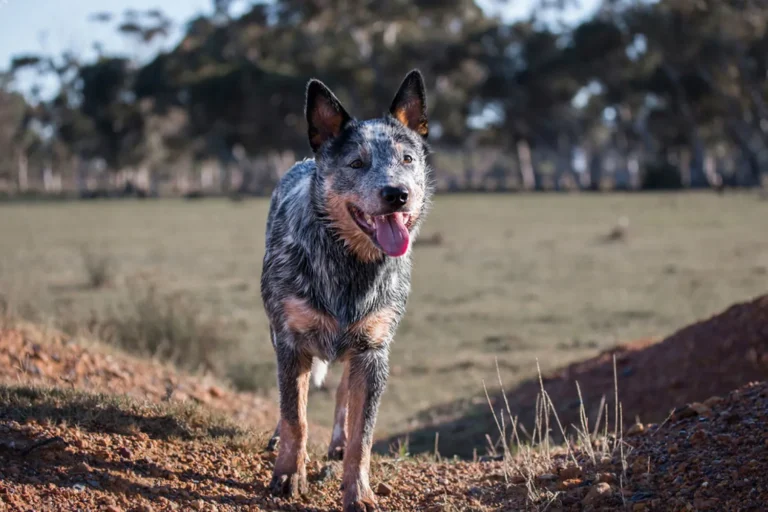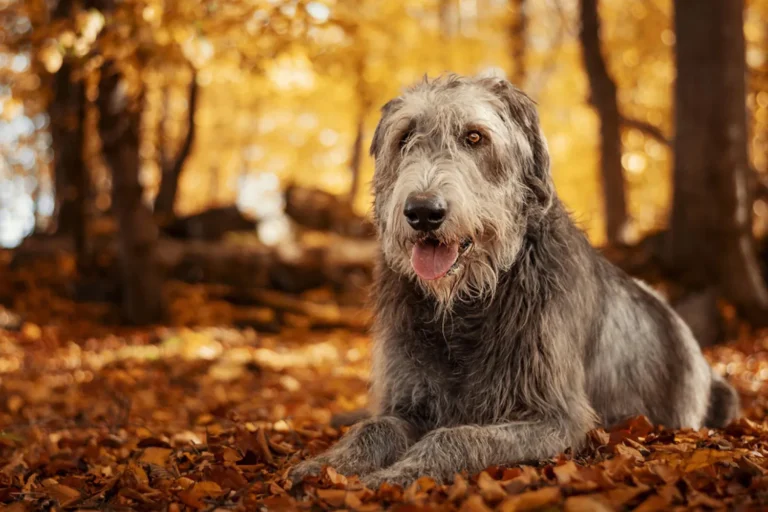
With their charming personalities and those unmistakable bat ears, it’s no surprise French Bulldogs steal hearts wherever they go. I still laugh thinking about the first Frenchie I met at a neighborhood picnic he strutted over like a tiny, snub nosed comedian, plopped onto my shoes, and sighed as if we’d been best friends forever. They have a way of turning everyday moments into little joys, which is why they win over dog lovers from kids to grandparents.
If you’re thinking about bringing a Frenchie home, you’re in for a loyal shadow and a professional couch companion. Picture short, cheerful walks, lots of cuddles, and a soundtrack of gentle snorts. In this guide, I’ll share what to expect from temperament and training to grooming and daily routines plus a few hard earned tips so you can decide if a Frenchie fits your life as perfectly as they fit on your lap.
What Is the History and Origin of the French Bulldog?
Despite the très chic name, the “Bouledogue Français” actually traces its roots back to Nottingham, England. In the 1800s, lace workers there kept small bulldogs miniature, sturdy little companions who curled up by the workbenches and helped keep the rat population in check. I once wandered through a lace museum in the Midlands and could almost hear tiny claws clicking along the old floorboards; it’s easy to imagine a compact, snub nosed buddy snoozing while the looms clattered on.
When the Industrial Revolution brought mechanization, many lace makers lost their jobs and headed across the Channel to France, where their skills were still in demand. Naturally, they took their beloved dogs with them. I like picturing those little bulldogs stepping off the boat in Normandy, ears perked, ready for a new life. In their new home, they quickly won over French shopkeepers and market vendors, who appreciated a calm, people oriented dog that could patrol a storeroom and then curl up behind the counter. That’s how they earned the affectionate nickname “Frenchie.”
As the dogs settled into French life, their look and temperament were gently refined. The compact frame, expressive face, and those iconic “bat” ears became part of the charm we recognize today. Old photos from Paris show dogs perched on café chairs, watching the world go by a perfect fit for a breed born to keep its people company while they work, chat, and stroll.
If you live with a Frenchie, you’ll still see flashes of their workshop and shopkeeper past. They’re wonderfully content to hang out while you tackle emails or cook dinner, and they’ll keep an eye on any squeaky toy like it’s a suspicious mouse. A friend of mine runs a little boutique, and her Frenchie greets customers from a velvet stool like a tiny concierge then naps like he’s still on break in a Nottingham workroom. It’s history you can feel every day in their easygoing, people first personality.

What Is a French Bulldog?
Think compact, muscular, and surprisingly cuddly a little tank with a big heart. French Bulldogs are small dogs in the non sporting group, keeping company with Bulldogs and Boston Terriers. I can’t count how many times at the park someone has asked if my Frenchie was a Boston; they do look alike from a distance. Here’s my quick tip: Frenchies have those signature bat ears, a blockier head, and a heavier chest, while Bostons tend to be leggier with that tuxedo coat. Bulldogs are bigger and droopier altogether.
I joke that Frenchies are bowling balls in sweaters sturdy, adorable, and built for short spurts of play followed by long, snorty snuggles. If you’re ever unsure what you’re seeing, watch the walk: that confident little waddle gives the Frenchie away every time.

Who Is a French Bulldog Best For?
If you’re looking for a shadow with ears, a French Bulldog is your kind of dog. Frenchies are happiest when their people are nearby think work from home folks, retirees, or families where someone’s usually around during the day. Mine would curl up on my feet while I typed and let out the tiniest sigh if I moved an inch. They’re companion dogs through and through, and they crave that daily cuddle and chat routine. If your life has long stretches away from home or you want an all day trail buddy, a Frenchie probably isn’t the perfect fit. On days I had appointments, a midday dog walker or a few hours of doggy day care made a world of difference Frenchies don’t like being left to their own devices.
They’re affectionate to the core and give love like it’s their job. Most Frenchies get along nicely with kids and other pets, especially when the household teaches everyone to be gentle and respectful. I taught my niece to offer a palm for high fives instead of grabbing for hugs, and my Frenchie’s confidence with her skyrocketed. Short, sweet play sessions with plenty of breaks work best. They’re not marathoners they prefer a couple of short strolls and then a spot on the couch. Hot days and intense exercise aren’t their thing, so think shade, water, and easygoing outings.
One thing to keep in mind: Frenchies can be a bit possessive of “their” people, especially around unfamiliar dogs. I once made the mistake of giving belly rubs to a stranger’s Labrador at the park while my Frenchie watched cue the pout and a little grumble. Now I keep greetings calm and on neutral ground, and I use cues like “wait your turn” and “go to your mat” to keep everyone feeling secure. If you live with another dog, give equal lap time and do slow, thoughtful introductions.
In short, a French Bulldog is best for someone who wants a close, cuddly companion more than a rugged adventure buddy someone who enjoys short walks, doesn’t mind a bit of snoring, and values togetherness as much as the dog does. If that sounds like you, a Frenchie will happily be your little shadow with a big heart.
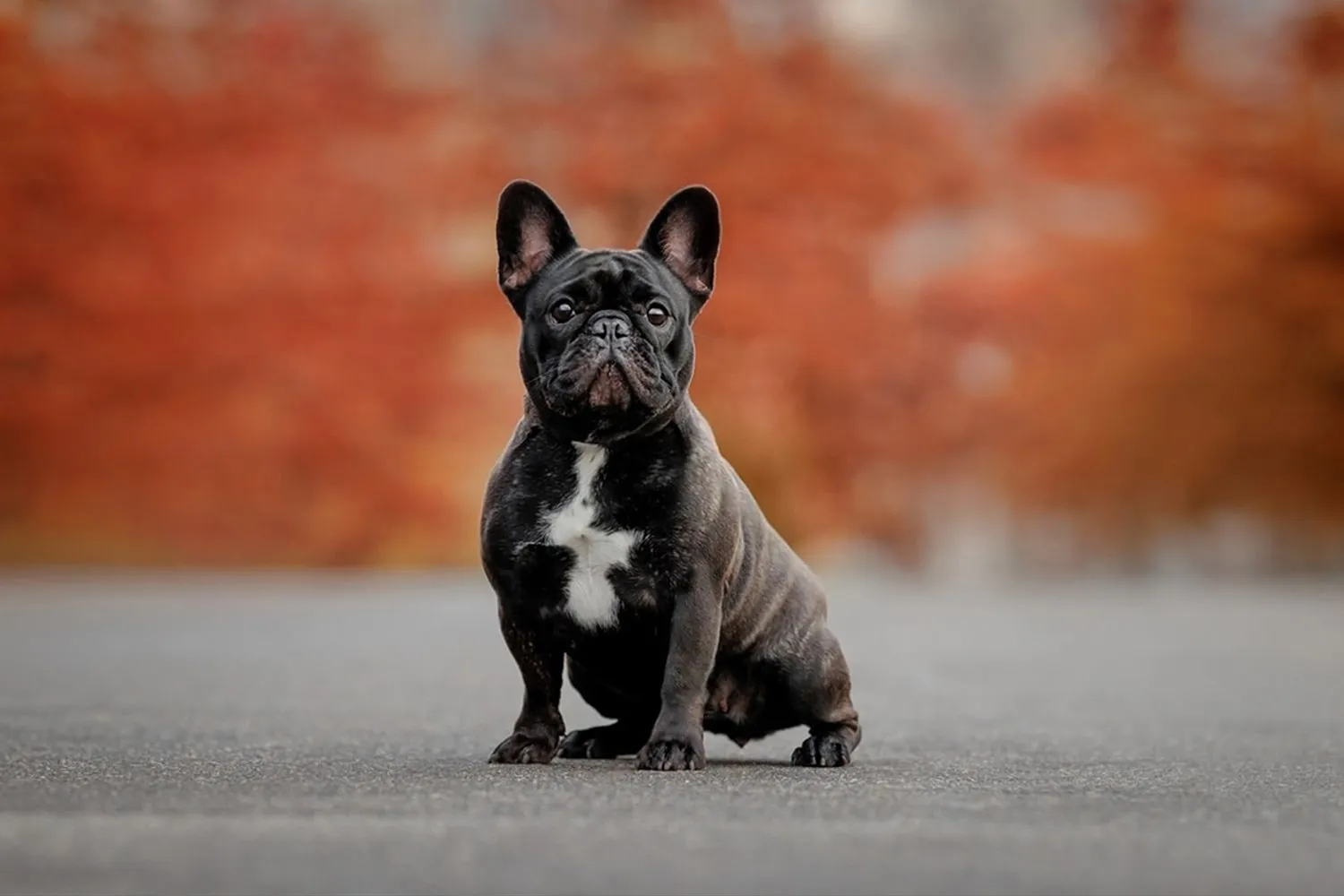
French Bulldog Grooming and Shedding
Thanks to that short, smooth coat, Frenchies are relatively low shedding day to day. You won’t be vacuuming up tumbleweeds every afternoon, though you might notice a small uptick in hair during seasonal changes. A quick weekly brush with a rubber grooming mitt or soft bristle brush is usually all it takes. I keep a mitt by the couch and give a five minute once over during a TV episode loose hairs come off, and the coat gets that lovely, healthy shine. Brushing also helps distribute natural skin oils, which keeps their coat soft and reduces that dry, flaky look.
Those adorable wrinkles need a bit of extra love, too. Frenchies have deep facial folds (and sometimes a tail pocket) that should be kept clean and dry to prevent irritation. I like to use a damp, soft cloth or a dog safe wipe after meals or playtime, then pat the folds dry with a clean towel moisture is the enemy here. If you ever catch a whiff of a sour odor or see redness, it’s a sign to clean more frequently or check with your vet. Bathe with a gentle, moisturizing shampoo every few weeks or as needed, and give those bat ears a quick weekly check for wax or debris.
Don’t forget the nails. Regular trims about every 2-3 weeks help prevent painful splits and awkward, splayed toes. If you hear that clickety clack on the floor, it’s time. I use a grinder and a lick mat with a smear of peanut butter to make it a positive experience; with black nails, I go slowly to avoid the quick. A steady routine makes grooming easy breezy and keeps your Frenchie looking (and feeling) fantastic.

Do French Bulldogs Bark a Lot?
If you’re hoping for a little watchdog who announces every visitor, a Frenchie probably isn’t your match. Most French Bulldogs are the strong, silent type more likely to blink at the doorbell than blast the neighborhood with warnings. Mine will offer a single, dignified “woof” now and then, but usually he just tilts his head, wags his whole backside, and waits to see if the newcomer brought snacks. Not exactly a security system more like a very charming concierge.
That quiet nature is a huge win for apartment life. I once lived in a building with walls thin enough to hear a neighbor stir sugar into tea, and still never got a complaint about my Frenchie. Your neighbors will thank you. Now, they’re not mute Frenchies are famous for their snorts, snuffles, and the kind of snoring that sounds like a tiny tractor. I hosted a movie night once where we had to raise the volume because my dog decided the soundtrack needed more “zzzz.”
If your Frenchie does bark, it’s usually for a reason: boredom, a sudden noise, or a plea for attention. A couple of short, relaxed walks, some puzzle toys, and a comfy nap spot go a long way. I like to teach a “quiet” cue and reward calm behavior it’s simple, and Frenchies are people pleasers at heart. So, if you want a loud alarm, look elsewhere. But if you’re after a mellow, low bark companion who’s content to snooze by your side, a Frenchie fits the bill beautifully.
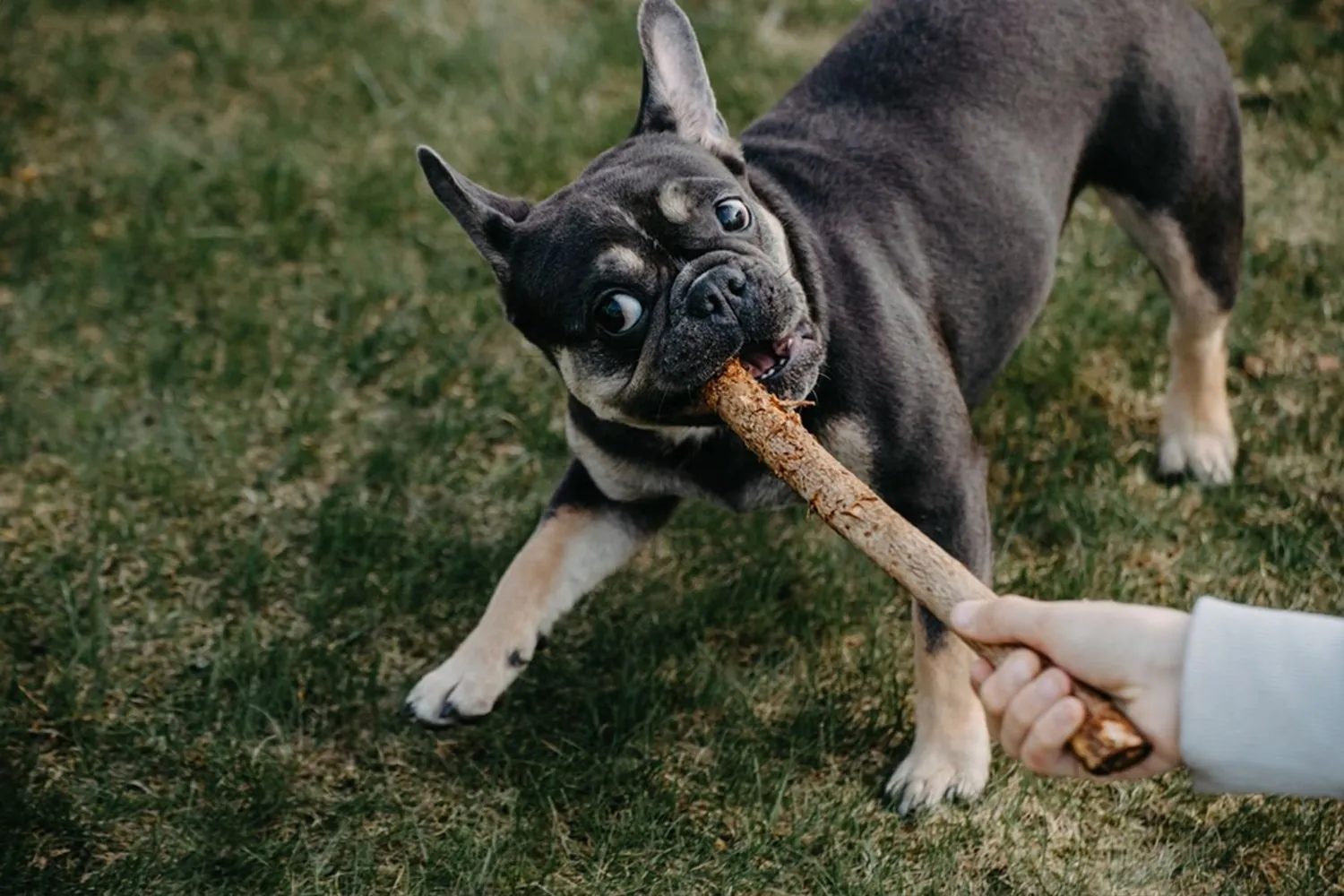
What Is the Average Weight and Height of a French Bulldog?
French Bulldogs are small but wonderfully sturdy little dogs. Most stand about 28 to 33 cm tall at the withers (that’s the top of the shoulders). They tend to look stocky and powerful for their size like a compact athlete in a cozy sweater. I always joke that my friend’s Frenchie, Poppy, is built like a tiny tank with a snoring problem.
When it comes to weight, there isn’t a huge difference between the boys and the girls. Typically, males weigh around 9 to 12.5 kg, while females come in a touch lighter at about 7.5 to 11 kg. Don’t be surprised if they feel heavier than they look Frenchies carry a lot of muscle. If you’re checking your dog’s weight at home, I like the bathroom scale trick: weigh yourself, then weigh yourself holding your dog, and subtract the difference. For height, use a soft tape measure and go from the floor up to the withers while your pup stands square (a handful of treats helps with the “stand still” part). https://en.wikipedia.org/wiki/French_Bulldog
A quick tip from experience: aim for lean, not chubby. You should be able to feel ribs under a light layer of padding and see a gentle waist when you look from above. Frenchies can pack on pounds fast, and extra weight can make breathing and joint issues worse. Keep portions consistent, measure meals, and save the high value treats for training Poppy will do just about anything for a pea sized piece of chicken, and her waistline thanks me for it.
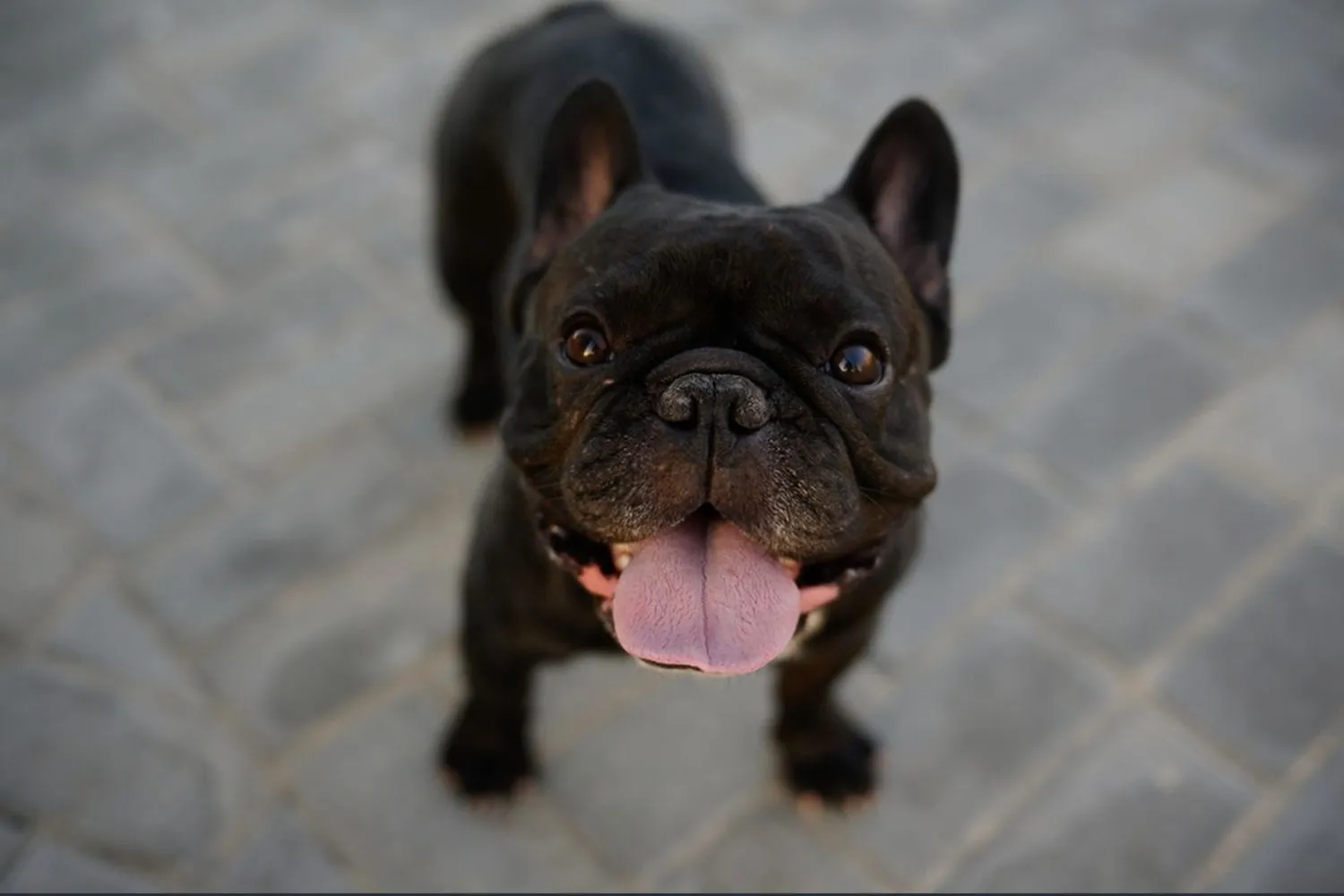
Are French Bulldogs Easy to Train?
Frenchies are smart little characters with big personalities, which means training can be surprisingly fun as long as you keep it short, sweet, and positive. They do have a stubborn streak, but they’re also food motivated and people pleasing in their own quirky way. When my Frenchie was a pudgy 10-week old, he’d work his heart out for a pea sized bit of cheese, then flop like a pancake the second he decided we were done. Two or three five minute sessions beat a marathon every time.
Puppy classes are a must and make a huge difference. In a good class, your Frenchie learns to focus around distractions, greet politely, and settle when asked. Even better, you’ll learn how to spot little habits like jumping, nipping, or pulling before they turn into bigger issues. I still remember an instructor showing me a simple “four paws on the floor = attention” rule that stopped the pogo stick greetings in a week.
Socialising isn’t just “meeting other dogs.” It means calm, positive exposure to the world: different people, places, sounds, surfaces, and scents. Take your Frenchie to the post office, sit on a bench near a playground, stroll past bikes and pushchairs, let them step on grass, wood, gravel. Keep outings short and upbeat, toss a treat when something new appears, and give them space to observe. I like bringing a little mat to cafés so my dog learns “this is your chill spot.” Friendly, vaccinated dog meet ups are great; crowded dog parks can wait until your pup is confident.
A few quick tips: use a harness for walks, reward what you like the moment it happens, and end on a win. With consistency and lots of praise, Frenchies absolutely can be well mannered, delightful companions stubborn charm and all.

How Do French Bulldogs Behave? A Look at Their Temperament and Personality
If you’re hoping for a built in best friend with a comedic streak, a Frenchie fits the bill. They’re famously adaptable and charming real cuddle magnets who consider your lap prime real estate. I’ve had a Frenchie fall asleep across my feet while I was cooking, chin on my sneaker like it was a pillow. They’re also quietly attentive. You won’t get a ton of barking, but you’ll feel those eyes on you, and if you forget to hand out cuddles, expect a gentle paw tap as a reminder. One friend’s Frenchie has impeccable timing he taps her knee exactly when she starts a Zoom call, like clockwork.
French Bulldogs are laid back companions who excel at the art of lounging. Picture short bursts of play followed by dramatic snoozing, usually with a contented snore and that classic frog leg sprawl. They enjoy people of all ages and are usually social butterflies with visitors. They’re happy with steady, simple routines: easy strolls, a sniffy walk around the block, a bit of fetch in the hallway, and then back to the couch. Don’t plan on agility courses or long runs Frenchies aren’t built for vigorous sports. In warm weather, I keep walks short and carry water; their comfort comes first.
Training a Frenchie is best done with good humor and treats. They’re smart, a little stubborn, and very sensitive to your tone, so short, positive sessions work wonders. I like to teach a “settle” cue and provide a cozy bed so they don’t feel the need to be on me 24/7-because Velcro is their default setting. Puzzle toys and gentle brain games help satisfy their curious minds without overdoing physical effort. Apartment life suits them well, and they make surprisingly good little watchdogs more of a huff and a head tilt than a bark. A breeder I met in California once said, “Frenchies want to be where the love is,” and honestly, that sums it up. Keep them close, keep it calm, and they’ll give you endless charm in return.

Common French Bulldog Health Issues
Like a lot of flat faced buddies, Frenchies can struggle with breathing, especially when it’s warm or humid. Mine turns into a little snort machine on hot days, so we do dawn walks and keep afternoons quiet with the AC on. Heat management isn’t optional with this breed it’s a must. They also tend to be more sensitive to anesthesia than many dogs. If your Frenchie ever needs a dental or surgery, talk with your vet ahead of time about brachycephalic safe protocols, pre oxygenation, and careful monitoring. I learned that lesson the day my boy went in for a simple procedure and our vet walked me through their special plan it gave me huge peace of mind.
Their eyes can be a bit high maintenance too. You might hear about:
– Juvenile cataracts, which cloud the lens and can affect vision. Regular vet checks can catch these early.
– Cherry eye, where the third eyelid gland pops out and looks like a red bubble. It’s startling but common, and surgery often fixes it.
– Entropion, where the eyelid rolls inward and rubs the cornea. If your Frenchie is squinting or tearing a lot, don’t wait call the vet.
Skin can be another trouble spot. Frenchies are prone to allergies and autoimmune skin issues, which can mean itchiness, redness, or ear infections. I keep facial folds clean with a gentle wipe and dry them well afterward moist folds are an invitation for irritation. If scratching gets intense, a vet visit is worth it; a change in diet, allergy meds, or topical care can make a world of difference. My friend’s Frenchie went from constant itching to snoozing happily after a simple food trial and a new skincare routine.
Because Frenchies have short noses and compact bodies, they can develop Brachycephalic Obstructive Airway Syndrome (BOAS). Know the signs: loud snoring that turns into noisy breathing even at rest, gagging, blue tinged gums, collapsing in heat, or tiring very quickly on walks. Keep them cool, use a harness instead of a collar, watch their weight like a hawk, and pace activities short, frequent play sessions beat long, strenuous ones. If you notice worrisome symptoms, your vet can discuss options, from lifestyle tweaks to surgical corrections.
Good breeders screen their dogs for known issues, so always ask about health testing when you’re puppy shopping. And once your Frenchie is home, build a little routine: regular vet checkups, eye and skin monitoring, climate control, and a sensible exercise plan. It sounds like a lot, but honestly, once it becomes habit, it’s just part of loving a Frenchie the payoff is all those goofy grins and couch cuddles.

How Long Does a French Bulldog Live?
Most Frenchies I’ve known settle into a happy rhythm of life that lasts about 9 to 12 years. That’s the range the American Kennel Club gives, and while it’s pretty typical across many dog breeds, it’s on the shorter side for a small dog. For comparison, tiny dynamos like Chihuahuas can often reach around 17 years, partly because they tend to have fewer breed wide genetic issues than Frenchies.
French Bulldogs are wonderful companions, but they do come with some health challenges that can affect longevity. Breathing difficulties, spinal problems, skin allergies, and eye issues can pop up, and in some cases they can be serious. I once fostered a Frenchie named Mabel who taught me the importance of slow mornings on warm days, we’d take short, shaded walks and keep a water bottle handy. She was a snugglebug with a comedian’s timing, but she needed thoughtful care to stay comfortable.
If you’re considering a Frenchie, do your homework. Talk to reputable breeders who focus on health and can show you testing and family history, or connect with a rescue that’s transparent about medical needs. Day to day, a few habits can help your Frenchie live their best life: keep them lean, stick to gentle exercise, avoid heat and humidity, clean skin folds regularly, and schedule routine vet checkups. A friend of mine swears pet insurance saved her when her Frenchie needed an unexpected airway procedure, so that’s worth looking into too.
With the right care and a little planning, these charming little clowns can fill your home with snores, snorts, and a lot of love for many years.
How Much Should a French Bulldog Eat?
Frenchies are compact little charmers, and they can pack on extra pounds faster than you’d expect. That extra weight isn’t just a fashion faux pas it can make some of the breed’s common health issues more likely. So the goal is steady, sensible portions and a routine that keeps them trim without making them feel deprived.
Start with the feeding guide on your dog’s food as a baseline and measure every meal with a cup or, better yet, a kitchen scale. Then watch your dog, not just the bag. You should be able to feel ribs under a light layer of padding, see a gentle waist from above, and notice a nice tummy tuck from the side. If your Frenchie is getting a bit barrel shaped, cut the daily portion by about 10% and recheck in two weeks. I keep a sticky note on the fridge and jot down any changes it helps everyone in the house stay consistent.
Treats are fine but tiny. Aim for treats to be no more than 10% of the day’s calories. I break training treats into pea sized bits, or I use a handful of their regular kibble during training. My friend’s Frenchie, Olive, will happily “work” for her dinner kibble, which keeps her waistline in check. If your pup is a snack enthusiast, try low cal options like green beans or blueberries in moderation.
Routine matters, too. Most adult Frenchies do well on two measured meals a day; puppies need smaller, more frequent meals. Skip free feeding it’s a fast track to chubbiness. And because many Frenchies would snooze all afternoon if allowed, daily exercise is non negotiable: two short, brisk walks plus a little play or a sniffy stroll usually does the trick. On hot days, keep it brief and cool; a puzzle toy indoors can stand in for a longer walk. If you’re ever unsure, a quick weight check and a chat with your vet can fine tune the plan.

French Bulldog FAQs
Are French Bulldogs good family pets?
Absolutely. This flat faced, cuddle loving breed was practically built for family life. Most Frenchies slip into household routines like they’ve always been there. They’re usually laid back and people focused, which makes them great companions for kids and a good match for homes with other pets. I remember the first weekend I babysat my friend’s Frenchie, Olive she spent half the day dozing with her chin on my ankle and the other half doing short, silly zoomies that had everyone laughing. That said, those playful streaks can get a bit enthusiastic. Always supervise around young children, and teach kids how to pet gently and avoid tugging on ears or hugging too tightly. Frenchies don’t need a big backyard to be happy, but they do love short play sessions, puzzle toys, and snuggle time. They can be little comedians, and yes, the snoring is real consider it part of the charm.
How can I help a French Bulldog suffering from breathing difficulties?
Start by knowing what’s normal for your dog and what isn’t. Frenchies can be a little snorty by design, but heavy or noisy breathing when they’re resting, excessive panting, or struggling to settle after mild activity are red flags. If you notice that kind of breathing even during nap time, it’s time to call your vet. In the meantime, keep them cool heat is tough on Frenchies. I plan summer walks for early morning or after sunset, use shade breaks, and carry water. A cooling mat or vest can be a lifesaver on hot days, and air conditioning is your best friend. Avoid strenuous exercise and never leave them in a car, even for a minute. A well fitted harness (instead of a collar) takes pressure off the neck, and keeping your Frenchie at a healthy weight makes breathing easier too. If you ever see extreme distress gums looking pale or blue, collapse, or frantic, labored breathing treat it as an emergency and get veterinary help right away.
Is a French Bulldog friendly with other breeds?
Generally, yes especially when they’re socialized from a young age. Frenchies tend to be sociable and even keeled, so with positive experiences they usually greet other dogs like old pals. Early puppy classes, calm introductions on neutral ground, and short, happy meetups go a long way. I like to start with a parallel walk and a little sniff session before letting dogs play. My neighbor’s Frenchie, Gus, started that way and is now the unofficial greeter at our park; he trots up to everything from goofy Labradors to dignified Greyhounds with the same cheerful wag. Keep an eye on body language and give breaks during play Frenchies can get excited quickly. With thoughtful introductions and consistency, they tend to be wonderfully polite canine citizens.
Every dog is an individual, of course, but with sensible care and a little planning, a French Bulldog can fit beautifully into family life and make friends just about everywhere they go.
Disclaimer:
This article is for informational purposes only and doesn’t replace professional veterinary or training advice. Always consult a certified vet or dog trainer for guidance specific to your pup.


